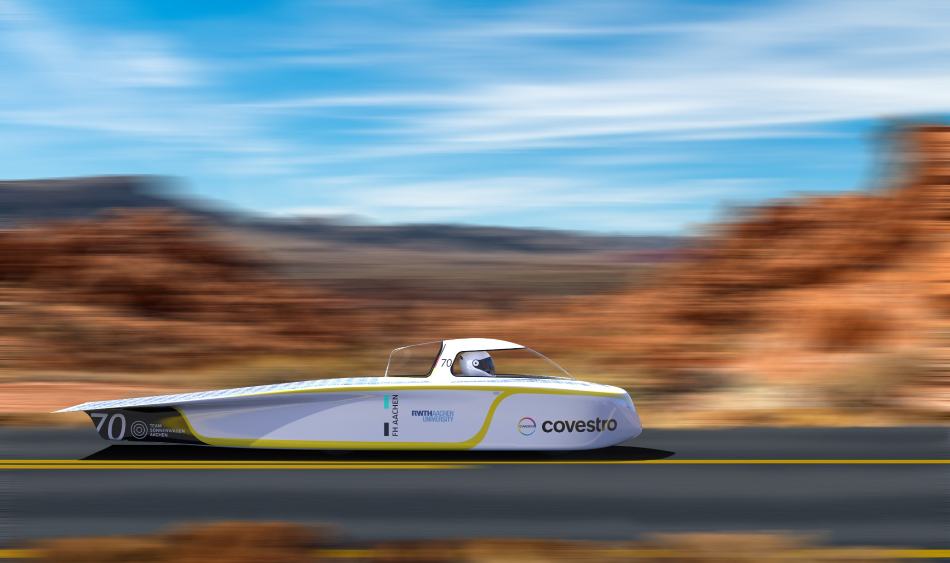A solar powered car using igus plain bearings has raced its way across more than 1,800 miles of Australian desert – helping Team Sonnenwagen win sixth place in the World Solar Challenge 2020.
 1,878 miles across the Australian desert: with its solar car, Team Sonnenwagen took on the challenge. (Source: Covestro Sonnenwagen Aachen)
1,878 miles across the Australian desert: with its solar car, Team Sonnenwagen took on the challenge. (Source: Covestro Sonnenwagen Aachen)
The team, made up of a group of students in Germany, approached igus, requesting lightweight, wear-resistant, and lubrication-free iglidur plain bearing technology made of durable tribo-polymers. This helped the team to comfortably finish in sixth place, having raced from Darwin to Adelaide in less than a week.
igus, whose UK headquarters are in Northampton, are motion plastic experts and a global manufacturer of energy chain systems and polymer plain bearings.
Kersten Heckmann, of Team Sonnenwagen, added: “The igus bearings were key because they literally held the car together. If a bearing failed, the repair would have been very time-consuming. In addition, the bearings we used needed to be wear-resistant and lightweight. The lighter the solar-powered car, the more efficient it is to drive and the further we could go. A huge thank you to igus for all the expert help and support.”
igus‘ lightweight iglidur plain bearing technology was integral to the design of the solar-powered car design. Self-adjusting igubal clevis joints were used in the car’s steering system. Also, iglidur J was selected for the plain bearings used in the rear wheel suspension.
In the hinges of the cover lock iglidur G plain bearings were used, this tribo-polymer is cost-effective and has a high wear resistance.
Special solution printed quickly: The cover of the solar car posed a unique challenge to the team and to igus. According to the race rules the driver needed to be able to open and close the car independently when entering and exiting the vehicle. The car’s cover was 5 metres long, barely one metre in width, weighed 25kg with the solar cells and in the early stages of design the opening was jerky and needed a lot of force. The problem lay in the heavy, 3D printed bearings made from a basic plastic.
To rectify this the team placed an urgent order with igus for 3D printed bearings made from the high-performance polymer iglidur I3. This laser sintering material is characterised by its low coefficient of friction and, like all iglidur materials, is resistant to dust and dirt and therefore ideally suited for the desert. Thanks to the use of the printed bearing, the driver now only needed a few seconds to get in and out.
Young Engineers Support programme: Projects such as this one are supported by igus as part of its Young Engineers Support programme. igus is committed to supporting students and lecturers across the world with free samples, sponsorships, and the development of innovative projects. For details: www.igus.co.uk/yes